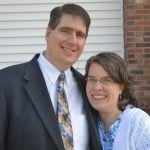⏱️ Estimated Reading Time: 8 min read
Introduction
The journey of a thousand miles begins with a single step. It is an ancient proverb that has timeless truth for our walk with God. There is an intrinsic tendency of all men and women to live by comparisons. We see some who are better off than us, and we feel bad. On the contrary, when our glance finds someone worse off than us, our self-image increases. But what if life was not meant to be lived in comparison with each other but rather in a simple journey of growth and development, a journey that certainly has more than a thousand miles in front of us, yet can begin with a single step.
The purpose of this series, no matter how long this stretches out, is to give us a road map of sorts for our journey. It does not come with the ready-made push pin that to inform “where you are” but it can give a direction as to where you should be going. After all, our walk with God is much less about where you are now and more about where are you going. The truth is, we are all moving towards something. There is no standing still. There is no having arrived. We are all on the conveyer belt of life, and it is moving us one way or the other.
As followers of Jesus, we are called to jump on the path that leads to life. If we miss that, either by our indifference or our outright rejection, we have headed the opposite direction away from God. So how do we find and keep to the right path? It is a question that is all too simple and yet far too profound to answer in our own power. It can be summed up in three simple phrases: “Know God’s Word,” “Live God’s Word,” and “Live in community with God’s people.” For this series of articles, we will unpack these three phrases. My prayer in doing so is that this will provide a basic guide for the journey with Christ.
I remember well the day I stood in the church library. The stack of books looked familiar, having read most of them before. At first glance, it was like the reunion of long time friends. The titles and the authors looked back at me and brought me back to our visits and wisdom dispensed. Amid the warm feelings of familiarity, however, a haunting thought overwhelmed the positive memories: these were books that had been given to a former church member who has since turned away from God. This thought was confirmed through a quick look at one of the books, a Bible study guide that had been marked up by the owner, or at least the first two chapters. With a bit of sadness, I read the comments written there, based on Romans 1, of the need to read the Bible and live it out. It was then that it hit me, this erring believer needed one thing in their life right now, it was exactly what they had written, read the Bible and do what it says. It further struck me that this is what everyone needs if they want to follow Christ. We need to know God’s Word, live God’s Word, and do all of this within the community of faith.
Three statements: short and sweet. Easy to understand in one sense yet challenging to live them out truly. It is easy to say the words “know God’s Word,” but altogether more troublesome to follow through on this task. In fact, each of the three statements fit the bill: “Easier said than done.” However, if we are going to be what God wants us to be for Him, we need to roll up our sleeves, wherever we are in the great circle of faith and get busy with these three.
Now before we go too far down the road in our study, it is important to state that none of this is produced by our effort: it is the work of the Holy Spirit. There are no self-made Christians, and there are certainly no self-sanctified Christians. It is all the work of the Holy Spirit. To follow through on knowing God’s Word, living God’s Word and doing so in the community simply puts us in the neighborhood of the One who does the work. For example, if my car is not working right, I will get in the car, drive it to the mechanic, park it in the garage, and let the mechanic work on it. I might even report to my friends or family in the time following, “I fixed my car.” However, the truth is, you did the work in getting it there, but the mechanic is the one who fixed it. Much the same way, we put ourselves in the right position for the Spirit of God to work in us when we are working the know God’s Word, live God’s word, in the community.
In this article, I want to give just a short explanation of what I am referring to in these three statements and will expand on these three in subsequent articles. First, know God’s Word: It is a problematic thing to define or explain this statement as it can go several different directions. While there is a benefit to having an in-depth knowledge of the teachings of the Bible, mere knowledge of the facts is not what we are aiming for. Our goal is not to win Bible trivia contests or to look or be the smartest one in Bible class. Further, knowing God’s Word can never be seen as a destination, but rather as a journey on which each one of us is invited. What I mean in saying “know God’s Word” is that you will possess a growing understanding of who God is and what He has revealed in His Word with the purpose of applying it to your life situation. This includes the most basic knowledge of the gospel that leads to salvation and continues moving out from there. We never arrive at a place of full knowledge of God’s Word, because there is always more we will have to learn. But, even now, there is a body of information we know about God, and it should be growing in us.
Our second phrase, “live God’s Word,” can be understood to be the calling on all followers of Jesus to not only hear the Word but do it (James 1:22). We probably have all heard the person struggling to decide what God wants them to do with their life saying, “If God will just tell me what to do …” The reality is that 85-90% (or more) of what we do in life, God has spelled out very clearly in the Scriptures. Now, certainly, there are things that come up that will be confusing to us, but most things are clear: we just need to do what it says. The problem is, quite often, we don’t like what it says and so we look for ways around it or just completely ignore what God says. James tells us that this is like looking at ourselves in a mirror and going away without remembering what you look like, and in the case of most of us, doing something to fix that reflection in the mirror! So, inasmuch as you know God’s Word, live it out in what you do know.
Our last phrase reminds us that we are not meant to live solitary lives, but rather the truth of God’s Word is learned and lived in the context of a community of fellow followers of Jesus. The idea of a Christian living on their own apart from any church is both unwise and unbiblical. When God said it is not good for man to be alone, He was not only talking about the need for Adam to have a wife but was indicating that we were created to be in community with others. Some theologians make the point that God, Himself, dwells in community which we call the Trinity, and that community is part of the image of God that is given to mankind. It is one thing to know God’s Word, it is a better thing to do God’s Word, but it is the best thing to know and do God’s Word in the context of a community. This is God’s design for His people, His church, that we would be faithfully learning and living truth in the community where God has placed us. In the subsequent articles, we’ll try to unpack these phrases more thoroughly.




